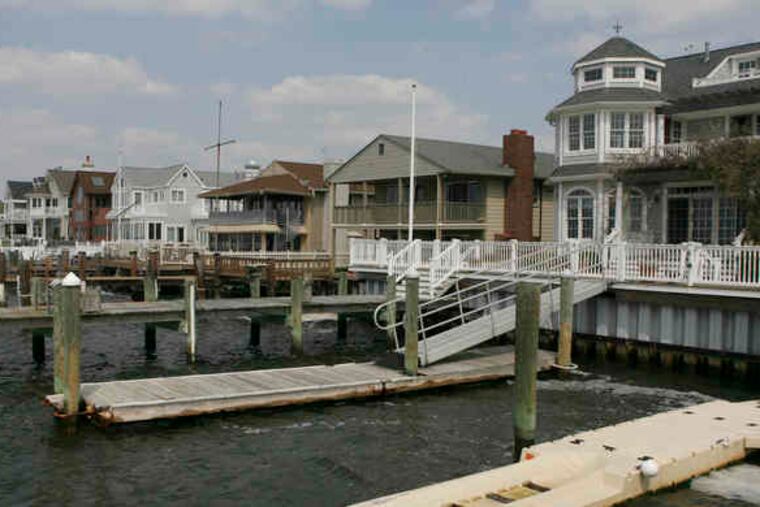PhillyDeals: 2010 will likely be a good year to die rich
If you plan to die rich, do it in 2010. The United States plans a one-year, estate-tax-free special. Unless Congress acts quickly.

If you plan to die rich, do it in 2010. The United States plans a one-year, estate-tax-free special. Unless Congress acts quickly.
Under a President George W. Bush-era law, the national inheritance tax on dead people's estates is scheduled to expire for a year on Jan. 1 - then return, bigger and broader, in 2011.
Right now, the estate tax clips 45 percent of everything left unprotected by the fewer than 1 in 100 Americans who die leaving $3.5 million or more.
Next year is the scheduled tax jubilee. Then the tax comes back in 2011, at around 55 percent - on everything over $1 million.
If nothing's done, estate-related tax revenue for Uncle Sam will slip from around $22 billion this year, to around $15 billion next year - then jump to $35 billion in 2012, the Congressional Budget Office estimates.
House Bill 4154 would extend the estate tax into 2010 on today's terms. That would keep next year's estate-tax receipts around this year's level, while limiting later increases, according to the CBO. It passed the House with President Obama's support, but has stalled amid the Senate health-care debate.
"Let's say your parents have a little Shore house," says Marguerite Mount, principal with Hamilton Township-based tax advisors Mercadien PC. "They paid $200,000 for that Shore house. They die, and you inherit that Shore house in 2010, and it's now worth $2 million." Under today's rules, no estate tax. Nice.
"Now let's say you want to sell it," Mount explains. "Under 2009 rules, you don't have to pay inheritance tax," since the house is worth less than the $3.5 million limit.
But under 2010 rules, and without an inheritance tax, the heirs would contend only with a capital gains tax (if they sold the house) - around $360,000, 20 percent of the increase in the home's value since their parents bought it.
Add the impact of inheriting their main residence, insurance policies, retirement accounts, and this gets complicated. Will the Senate step in and alter all of this arithmetic? "We can't help people plan if we don't know where this is going," Mount said sweetly.
Old Lane to Main Line
Joseph F. Delaney III graduated from Villanova (after Bishop McDevitt) back in 1985, picked up a couple of masters' degrees from the University of Chicago and the London School of Economics, and headed for Wall Street to make his fortune as a trader.
Now he's back on the Main Line, as president of Radnor-based Waterville Capital and its month-old, $50 million-asset Waterville Large Cap Value Fund, which he runs with partner Sean Bonner, a Radnor High and U. of Delaware grad who traded derivatives for Deutsche Bank and ran a firm on the old Philadelphia Stock Exchange.
The fund bet on hospital stocks (Coventry Health Care, Humana), drugs (Bristol Myers), and "consumer discretionary" companies (Meredith Corp.) Delaney and Bonner pick stocks based partly on companies' debt structure, not just the price-to-earnings ratios favored by other value-stock investors.
They've been avoiding banks and other companies with lots of financial debt. By contrast, "health care's a value play that we thought was overly beaten up" because of other investors' fears over the new U.S. health-care proposals, Delaney told me.
"I always wanted to get into equities, but there were no jobs in equities right after the 1987 stock market crash," he said. "So I got into commodities, and stayed 20 years" - the first 17 at Morgan Stanley, the rest with a group of Morgan Stanley veterans at Old Lane Capital Management L.P. Commodities require patience, which he calls good training for stock-watching.
Old Lane's most prominent alumnus is Vikram Pandit, who negotiated the firm's sale to Citigroup for a reported $800 million in 2007, and now runs the troubled bank as CEO. Delaney headed Old Lane's commodity-trading office in Radnor, until Citi shut it as it prepared to fold Old Lane in 2008. Delaney and Bonner went to their investment-adviser contacts, and raised the capital to start Waterville, named for their favorite Irish town.
Bonner lives in Ardmore, Delaney in Princeton. They met and used to commiserate on the trains to New York. Their commutes are shorter now.